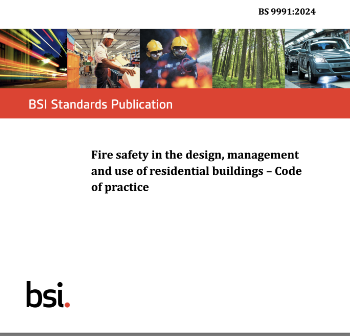Short period programme
Programmes describe the sequence in which tasks must be carried out so that a project, or part of a project, can be completed on time.
When deciding on the amount of detail that is required on a programme, it is important to consider what the programme is for. Senior management may require a more detailed breakdown, while operational management may require details of activities on a day-to-day basis. The level of planning tends to become more detailed as the project progresses, and once the contract stage is reached many contractors will prepare short period programmes.
Short-term or short period programmes allow the overall construction programme to be broken down into specific time periods that can then be scheduled in much greater detail.
On refurbishment or renovation projects of a relatively short duration, Short period programmes may be prepared on a daily basis for each trade employed on the project. On large projects, the short period programme may, in effect, act as a sub-programme that keeps the master programme up to date.
For example, a programme covering 3 weeks’ work might be produced, and at the end of the first week of this programme, another 3-week programme prepared for the following period that reflects progress, problems and any changes to be made.
Short period programmes offer the contractor a better means of controlling day-to-day operations on site and act as a useful method of communication between the site manager, the foreman, subcontractors and trades. They can also be used in toolbox talks in order to engage the workforce with the health and safety implications of the programme.
The short period programme may be prepared by a site-based planning engineer or construction manager. The main objectives of the short period programme are:
- To assist in the coordination of operations in the short term, especially when considering the continuity of work for trades and subcontractors.
- To keep the master contract programme under constant review.
- To highlight information requirements in the short term in order to meet planned completion dates for each stage of the work.
- To assess key material requirements.
- To keep senior site management informed of progress.
NB The Code of Estimating Practice, seventh edition, published by the Chartered Institute of Building (CIOB), suggests that the short term programme is:
| The name given to the contractor’s strategic works programme for a particular section of the works. It should be a critical path network, integrated with the master programme and show, amongst other things, the resources to be used on each activity and their duration and the cost calculated by reference to the productivity that the resource is planned to achieve. |
[edit] Related articles on Designing Buildings Wiki
- Accepted programme.
- Activity schedule.
- Baseline programme.
- Contract documents.
- Contractor’s master programme.
- Critical path method.
- Design programme.
- Information release schedule.
- Key performance indicators.
- Lead time.
- Milestones.
- Pre-construction information.
- Programme.
- Programme consultant.
- Programme for building design and construction.
- Progress of construction works.
- Scheduling construction activities.
- Tender works programme.
[edit] External references
- ‘Construction Planning, Programming and Control’ (3rd ed.), COOKE, B., WILLIAMS, P., Wiley-Blackwell (2009)
Featured articles and news
The restoration of the novelist’s birthplace in Eastwood.
PAC report on the Remediation of Dangerous Cladding
Recommendations on workforce, transparency, support, insurance, funding, fraud and mismanagement.
New towns, expanded settlements and housing delivery
Modular inquiry asks if new towns and expanded settlements are an effective means of delivering housing.
Building Engineering Business Survey Q1 2025
Survey shows growth remains flat as skill shortages and volatile pricing persist.
Construction contract awards remain buoyant
Infrastructure up but residential struggles.
Home builders call for suspension of Building Safety Levy
HBF with over 100 home builders write to the Chancellor.
CIOB Apprentice of the Year 2024/2025
CIOB names James Monk a quantity surveyor from Cambridge as the winner.
Warm Homes Plan and existing energy bill support policies
Breaking down what existing policies are and what they do.
Treasury responds to sector submission on Warm Homes
Trade associations call on Government to make good on manifesto pledge for the upgrading of 5 million homes.
A tour through Robotic Installation Systems for Elevators, Innovation Labs, MetaCore and PORT tech.
A dynamic brand built for impact stitched into BSRIA’s building fabric.
BS 9991:2024 and the recently published CLC advisory note
Fire safety in the design, management and use of residential buildings. Code of practice.


















